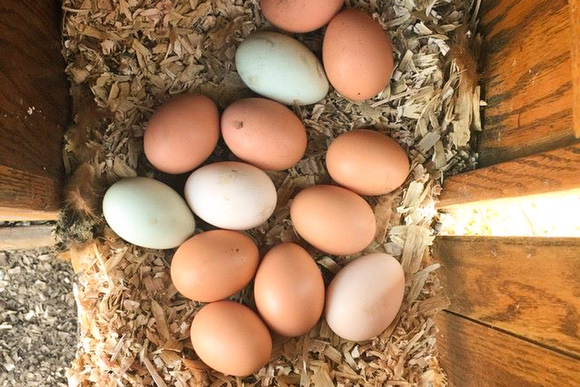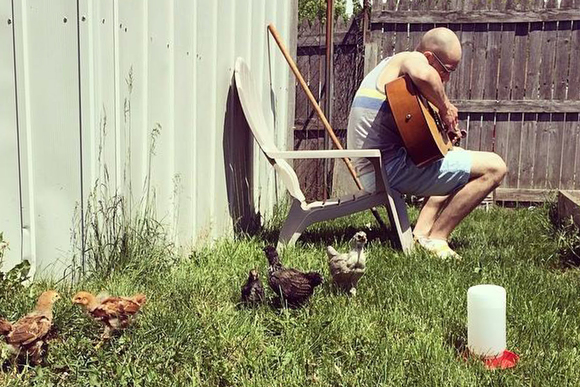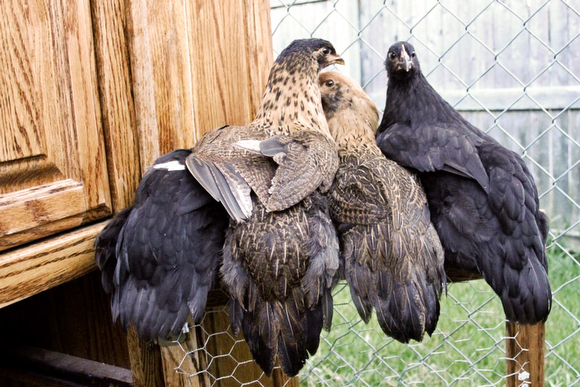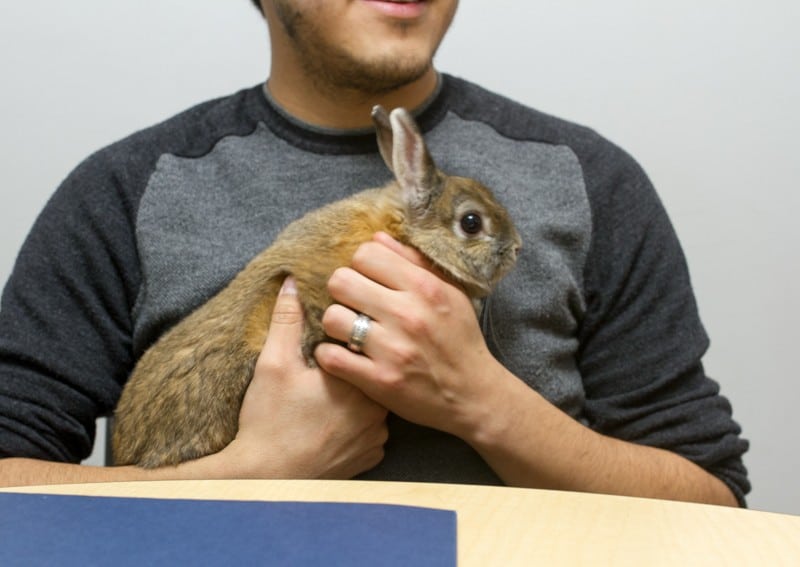Keeping backyard birds: Urban chicken farmers sound off on new permit
Hearing any clucking lately? With a new-ish ordinance on the books, chickens have become the new "it" animal to farm within Grand Rapids city limits. Whether or not their birds are on the books, urban chicken farmers have plenty to say about this popular hobby — and the city's first attempt at regulating the cultivation of backyard birds.

Hearing any clucking lately? With a new-ish ordinance on the books, chickens have become the new “it” animal to farm within Grand Rapids city limits. However, with this experimental two-year permit, some chicken farmers are forgoing the regulatory process and choosing instead to go underground. Others have signed on, deciding to pay the fee and gain approval from neighbors. Whether or not their birds are on the books, urban chicken farmers have plenty to say about this new popular hobby, and the city’s first attempt at regulating the cultivation of backyard birds.
Jeff, a west side resident and avid backyard chicken farmer, faced challenges when determining to pursue a permit for the birds he began raising over a year before GR legalized backyard chicken farming. After obtaining four chicks in April of 2014, Jeff chatted with his neighbors about housing the birds in his yard. “My neighbors were very supportive,” he says.

In May of 2015, when the city legalized a two-year trial period for the practice, it formalized the neighbor informing process. This allowed nearby residents to voice their complaints, risking the permit issuance for the chicken farmer. “Most other cities do not have the neighbor approval,” says Jeff, noting that this element of the new ordinance was the primary reason why he did not seek a permit. “I will gladly pay my $50 permit fee but I have a problem with the neighbor thing,” he says.
In addition to informing one’s neighbors and paying a $50 fee and $10 permit renewals, backyard chicken farmers must also only farm on single- or two-family dwellings, maintain a “properly designed chicken coop,” and refrain from slaughtering their birds, among other restrictions. The city breaks down the ordinance on its website.
Despite these restrictions, interest in backyard chicken farming is rising, slowly. According to Grand Rapids Development Center Coordinator Lou Canfield, the city has received 35 applications thus far, and 28 have been approved. Information about permits in process can be found on the city’s permit database. “I think the program has been running smoothly,” says Canfield, despite the fact that only 35 applications out of 60,000 urban properties is “less than I would have expected,” he adds.
Canfield thinks that the fee may have caused some to forgo the short application. “Some may be deterred by the 50 dollars,” he says.
In addition, two denial appeals caused the development center to change a practice that may have made it difficult for neighbors to fully understand the process. Upon receiving each application, the city sends a letter to neighbors who share a lot line with the applicant, notifying them of potential chicken farming and informing them of their right to disapprove. However, the city included little information about the regulation of the chickens, an item that two denied applicants thought would have been helpful to their case. “I thought that was a good suggestion,” says Canfield, who has since started sending more information to neighbors.

Katie, who was undeterred by the application fee and the neighbor notification requirement and has already received her permit, only had difficulty with the new regulation with property lines. “The most frustrating thing for us was having to move our chicken coop 10 feet away from any edge of our property,” she says. “Previously, our coop was pretty inconspicuous and out of the way, now it is smack in the middle of our yard. Chickens love dirt and dust, so now we are missing a big patch of grass where our new coop and enclosed area sits. Total cosmetic bummer!” she adds. Despite this hurdle, Katie notes, “The city’s permit process was fine.”
Pamela, an Eastown resident, decided to apply for a permit and share her space with three neighbors who would also farm chickens. Though she is still waiting for approval and notes that “the application process seems a little complicated,” she adds, “I understand that this is the first year.”
Above all, she looks forward to raising chickens with her neighbors. “I wanted to have chickens for the fun and experience of it,” says Pamela. “My other neighbors have 10 children between them. What a great experience for them to be able to care for chickens and collect eggs.”
Katie also utilizes her chickens to connect with neighbors, noting “The kids in our neighborhood also love the chickens. Having chickens has been an enriching experience for them and they have even named them. They help us feed them, clean up after them and collect their eggs.”
Jeff agrees, saying, “Sharing a dozen eggs is a great way to get to know your neighbors.” He also notes the benefit of self-sufficiency and education. “I am huge on using my property to provide for my family,” says Jeff. “Chickens are a great way to do this.” In addition to collecting two to four eggs per day from his chickens, Jeff also utilizes their manure in his garden each fall and teaches his children about food sources and caring for animals.
With this new hobby taking hold in local backyards and the city experimenting with regulatory processes, urbanites continue to cultivate eggs and an interest in combining rural activities in an urban setting. And during this two-year trial period, it looks like both the city and urban farmers will experience growing pains while learning the best practices for farming backyard birds.
Lauren Fay Carlson is a freelance writer and editor, Aquinas alumna, and Grand Rapids native. Her work can be found at www.emptyframecreative.com, and she can be reached at lauren@emptyframecreative.com for story tips and feedback.








